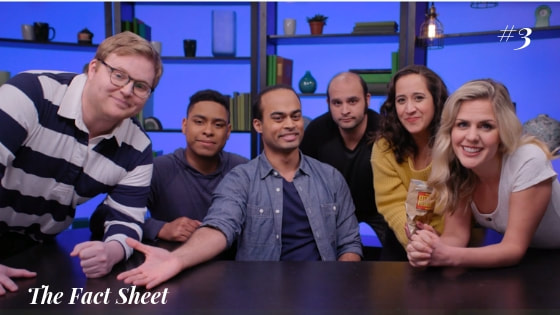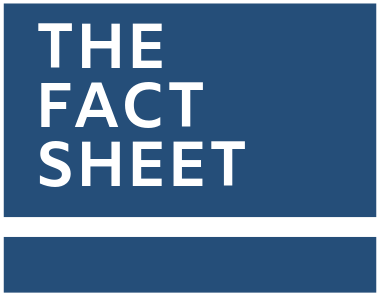|
Welcome to the third edition of The Fact Sheet. Throughout 2019 I'll be posting these one-of-a-kind conversations with social impact innovators.
Kalyan Ray-Mazumder is a full-time MBA student at the University of Chicago Booth School of Business, graduating as a Wallman Scholar in June, and has just launched Prepmedians, an entertainment-focused standardized test platform. Kalyan is a perfect-scoring tutor with 5,000-plus hours of tutoring the ACT/SAT and also a professional off-Broadway/film actor. He earned a BA magna cum laude from Yale University. Prepmedians is participating in the semifinals of Booth’s Social New Venture Challenge on May 28, with the finals to come on June 4. And now...just the facts! BD: How do high school students typically prepare for the SAT or ACT? KRM: It’s a really good first question because it gets to the heart of the inequity in the system. The answer to that depends on each student’s socioeconomic demographic. On the high-income side, you’ll see students who prep for six to eight months, spend $200 and $300 an hour for tutoring and end up spending anywhere in the $8,000 to $10,000 range for the span of that time to prep for the SAT or ACT. On the low-income side, you’ll see students pick up the red ACT book or the blue College Board SAT book and they’ll leaf through it the night before the test and do a few problems. They might read the explanations in the back and maybe they search the internet a little bit looking at Reddit, YouTube, or Quora, but the extent to which they’re preparing is largely determined by their financial means and time. There are a lot of other things happening in their lives that need immediate attention. One of the things that’s happening we see across the entire spectrum is that no student is starting the academic race from the same starting point. And furthermore they’re not wearing the same “shoes” and so inevitably you’re going to see differences in outcome that don’t necessarily reflect differences in academic ability. ACT itself did a study that demonstrated that on average a higher-income student will get what is equivalent to 26 percentile points more than a low-income student. That’s a pretty staggering statistic to think about. That’s another reason I’m bringing this to market because I truly believe that students who go through the Prepmedians platform will see staggering growth in their performance. BD: The next round of tests is the first week of June. Is there time, especially for students who already might be at a disadvantage, to truly prepare for those tests? KRM: Students will typically start preparing for their tests in their junior year. The SAT from the College Board is the primary state accountability test for Illinois they are going to take. Their schools will have paid for them to take the test for free inside the school during the school week. There is a June option available to them, whether June 1 SAT or June 8 ACT. What we’re trying to do with Prepmedians is because we teach in such a unique way, through sketch comedy, parody, music and rap, it’s something where we want to be able to jump in right now and help these students in the last three or four weeks before they take the test to have a fresh voice and a way of teaching them the material that is easily accessible to them. So they can try and get these next points along the way. We started with the ACT English and SAT Writing & Language sections because these are the sections that schools don’t necessarily have the resources to effectively teach. When I was tutoring, regardless of where they started, the majority of my students would end up in the 95th percentile or above for the English section. Because you teach them parts of speech, independent versus dependent clauses, different types of punctuation, subject-verb agreement, verb tenses and then the strategies for actually tackling the harder structure questions. Students can access that. It’s something they can learn. The short answer is quite distinctly yes, in the ACT English and in the SAT Writing & Language section the amount of time left until the June test is definitely sufficient. BD: How big is this market? I’m sure you and your team have thought about this. KRM: Presumably there are about 4 million students who are taking these tests. Of that, 20%, or roughly 800,000 students, are test takers who are low-income. These are the students we really want to help and provide this service to. We’ve already begun conversations with local Chicago and also New York public schools about how we can bring our services to market to help prepare for upcoming academic years and new students. What we envision is that there will be both these partnerships developed with schools and also a way of providing access online direct to consumer for students who might have different learning needs, which is also part of our market. And these students may have more financial needs at times. So we need to also make sure we maintain our affordability. For example right now through June 15 it’s only $30 to access the ACT English section or SAT Writing and Language section. That’s the full 20-plus videos that are all shot with our professional Broadway singers/actors, sketch comedians and with me as the host. And our 350-plus practice questions and the ability for students to create complete learning profiles to track their progress along the way. We are very conscious about making sure we are able to access and use the power of business to spread our impact and ensure it’s something that remains affordable and accessible to students in need. Our goal is to help create a generation of college-educated, engaged students. BD: What are the benefits of being a web-based service versus in-person tutoring? KRM: One of the things Prepmedians strives to do is really take advantage of what video- and web-based technology has to offer, in terms of it being a quite distinct medium from in-person tutoring. With video-based technology, we can cater to the particular needs of students. If they are visual learners, we have closed captioning for them. We have the ability for students who might have different needs in auditory processing to slow down the videos according to what they want. We have the ability for students to review a question set in a randomized order so they can continue to practice rather than memorizing. The ability for students to rewind and fast forward and understand that however they need to learn they don’t need to feel ashamed about that, or need to be in a situation where they don’t have the courage to ask a question. On their own they can rewind, replay and so forth. We filmed with a professional set in Brooklyn with a full production crew who have done incredible work ranging from television to commercials and film. We have really taken advantage of film as a medium and the ability for us to have the sketch comedy players act out scenes. I am in a sort of a John Oliver role providing through graphic interfaces the necessary pedagogical component. The idea is to tap into students’ emotional part of the brain, the amygdala, and allow that to aid the hippocampus, the memory part of the brain. So much research recently has demonstrated that if you engage the amygdala in the learning process, you increase awareness, attention, motivation and retention. As we say, learning is worth laughing for. BD: You’ve said that the idea is to create a generation of college-engaged students - that’s a really powerful statement. What’s driven the socially conscious approach for you and your teammates? KRM: One of the things that I’ve learned through business school is that business isn’t evil. Corporations aren’t necessarily as evil as, in my former life as an actor and educator, I might have thought. I have complete respect for people who believe that the way they can make an impact and obtain fulfillment in their life is through a business engine. What I came to realize is that I tick differently, though. I’ve realized that there is an important element in play here. The time I spent when I was working with the 1% of the 1% and making good money and enjoying the people I was working with, I wasn’t feeling completely fulfilled even though my bank account was more than sufficient for the life I was leading. The realization that there’s more to what I want to do personally than make a lot of money came to fruition when I was able to re-engage with the reason I came to business school, which is to spread this social impact mission. I admit the first year I was caught up in the consulting phase and I spent a summer working at the Walt Disney Company for strategy. All this was a necessary part of my development as a person. I’m not a corporate America guy and I’m actually grateful for those experiences because now I am dead set on the path I’m on. I feel for the first time in my professional life that all of my cylinders are firing. To see these students who have been traditionally disadvantaged in this education game, to see the looks on their faces when they see the materials that they now have access to. One of the most powerful things to see a person do is to smile and learn at the same time and to have a hand in that is an incredibly fulfilling process. Prepmedians is currently offering their entire Basic Tier for free and then providing a $29.99 add-on for the next two tiers for full access to the ACT English or SAT Writing & Language sections through June 15, 2019, which gives students 20-plus entertaining educational videos, 350-plus practice questions and explanations, and individual profiles to track their progress at prepmedians.com. This launch comes in time for students preparing for their June ACT/SATs. ##
0 Comments
|
The only social impact Q&A on the web
AboutThe idea behind The Fact Sheet is to document interesting conversations with super-interesting people. Archives
December 2019
Categories |


 RSS Feed
RSS Feed